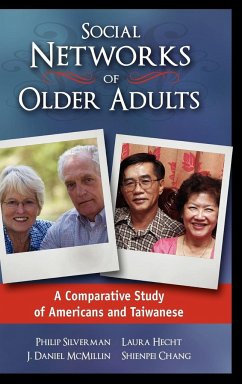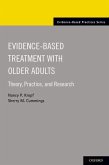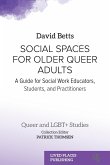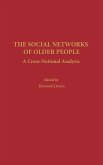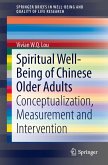Written by four authors, Philip Silverman (PhD, Cornell University), Laura Hecht (PhD, Indiana University), J. Daniel McMillin (PhD, Southern Illinois University), and Shienpei Chang (MA, California State University Bakersfield), this unique book examines how social networks contribute to a sense of well-being and a positive self-identity among older Americans and Taiwanese. Although social network analysis has grown increasingly important in the last several decades, few comparisons are available with Chinese and American samples; this is the first research project that compares a Western and an Asian culture using social network types. This research is also the first ever to use social network types to test hypotheses about values, reciprocity, social capital, and the health status of older adults. The data, gathered through systematic sampling in northeastern Oregon and central Taiwan, are first analyzed for the content of exchanges with network members. Then, the structure of the social network is determined by cluster analysis from which four network types are derived. This innovative, two-part procedure reveals a deeper understanding of the role social networks play in the quality of life among elderly in these two cultures. By comparing two very different cultures, the research reveals important details about the relative impact of broader social changes and social networks on the well-being of older adults. The two societies represent contrasting cultural sensibilities regarding the position and treatment of the aged. Yet, social changes in both countries have had a similar impact on older adults in some respects, but not in others. The data allow a determination of whether the inherent dissimilarities between a Western and an Asian culture, or the differences in the structure of each network type, can best account for the variation in exchange modalities and outcomes related to well-being and self-identity. A final chapter highlights possible future research in light of the theoretical and methodological implications of the findings. This book is a valuable resource for those in cultural anthropology, comparative sociology, gerontology, and Asian studies.
Hinweis: Dieser Artikel kann nur an eine deutsche Lieferadresse ausgeliefert werden.
Hinweis: Dieser Artikel kann nur an eine deutsche Lieferadresse ausgeliefert werden.

